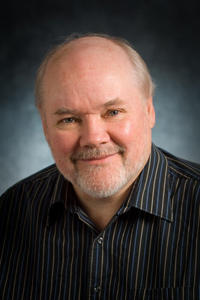
This summer poetry issue has been co-edited by Sue Sinclair and myself, Ross Leckie, and, as of the fall issue, Sue will be the new editor of The Fiddlehead. I am so excited to see where Sue will take The Fiddlehead. She is already percolating with new ideas, and is ready to shape The Fiddlehead to respond to the ever-evolving ways of conceiving Canadian literature and culture.
I am proud of the special summer issues we’ve produced during my time as editor. Larger than the regular issues, these summer issues have the feel of something like an annual anthology. Over the years we’ve received mail from readers who’ve particularly enjoyed a summer issue because they have discovered new favorites they hadn’t heard of before.
The thing that fulfills me most is publishing wonderful writing from new and emerging writers. There are a number of poets here who have received massive acclaim for their first books and in these pages you will see some of their new work. If you haven’t already, read Liz Howard’s Griffin Prize winning Infinite Citizen of the Shaking Tent, Ali Blythe’s Twoism, Stewart Cole’s Questions in Bed, Kayla Czaga’s GG shortlisted For Your Safety Please Hold On, Rebecca Păpucaru’s The Panic Room, Catriona Wright’s Table Manners, and Joshua Whitehead’s full-metal indigiqueer.
Pay attention also to the writers who are just publishing in the magazines for the first time and seeing their chapbooks appear. In this issue that includes: Neil Surkan, Catherine Seton, Claudia Coutu Radmore, Julie Mannell, Danielle Hubbard, Katie Fewster-Yan, Paola Ferrante, and Alisha Dukelow.
The Fiddlehead will be publishing Acadian writing in both French and English in future issues, and there is no better place to start than with poems from Jo-Anne Elder’s new translation of Herménégilde Chiasson’s very first book, Mourir à Scoudouc, which was so pivotal in the development of a modern Acadian literature.
I hope the reader sees the future of The Fiddlehead in this issue, but, for me, this is also a good moment to reflect on the past. Over the twenty-one years I’ve been editor I still think of the mistakes: the magnificent writing we declined only to regret it later. We still laugh in the office about the time Marvin Bell wrote us to say, “I have to withdraw a poem from my recent submission because it has already been published . . . by you.” Sure enough, the poem we were so keen on we’d published a few years earlier.
Sabine Campbell was the managing editor when I arrived and we had a lot of fun concocting all kinds of crazy schemes. When we noticed that we would occasionally receive calls asking how much our fiddleheads cost per pound, we considered selling frozen fiddleheads as a way to raise funds for the magazine. Sabine showed me how The Fiddlehead worked, and she taught me a lot about copyediting, considering our readers, and representing women writers. And thanks are still owed for her continuing work as our lead book review editor.
Mark Jarman arrived two years after I did and assumed responsibility for editing fiction. I have never encountered a better editor, and he has amazed me with email threads to writers that can last a year, polishing a story he wants to publish. I am so grateful to all the volunteers and students who have worked on The Fiddlehead over the years, not just for your work, but for being such great people. I can look at the masthead of any issue and fond memories come flooding back.
Norm Ravvin, thanks for jumping into the deep end with me in ’97. Gerry Beirne, thanks for bringing Ireland to our doorstep. I deeply appreciate all the staff: Kathryn Taglia, Rodney Johnstone, Mike Weger, Nicole Maggio, Ian LeTourneau, and Emily Skov-Nielsen. Kathryn, as managing editor for the last eleven years, thank you for holding the magazine together in the whirlwind. Mike, thanks for your design genius, though we wish you’d left your Pantone colours behind. Ian LeTourneau, thanks for being, well, Ian LeTourneau.
It can be all too easy to be cynical about university administrations and their priorities, and I confess to participating in that kind of criticism from time to time. The truth is, however, that UNB has always been a firm supporter of The Fiddlehead, of our artistic vision, and the importance of the journal for New Brunswick, Atlantic Canada, and for the entire country. They have given us crucial financial support, and this commitment has come from our presidents, vice-presidents both academic and research, our deans of the Faculty of Arts, and our chairs of the English Department. I cannot convey fully how truly grateful I feel.
So now it is time for me to say farewell, adieu, adios, au revoir, see you around the next bend and down the road, wherever that might be.
Ross Leckie
Editor











Add new comment